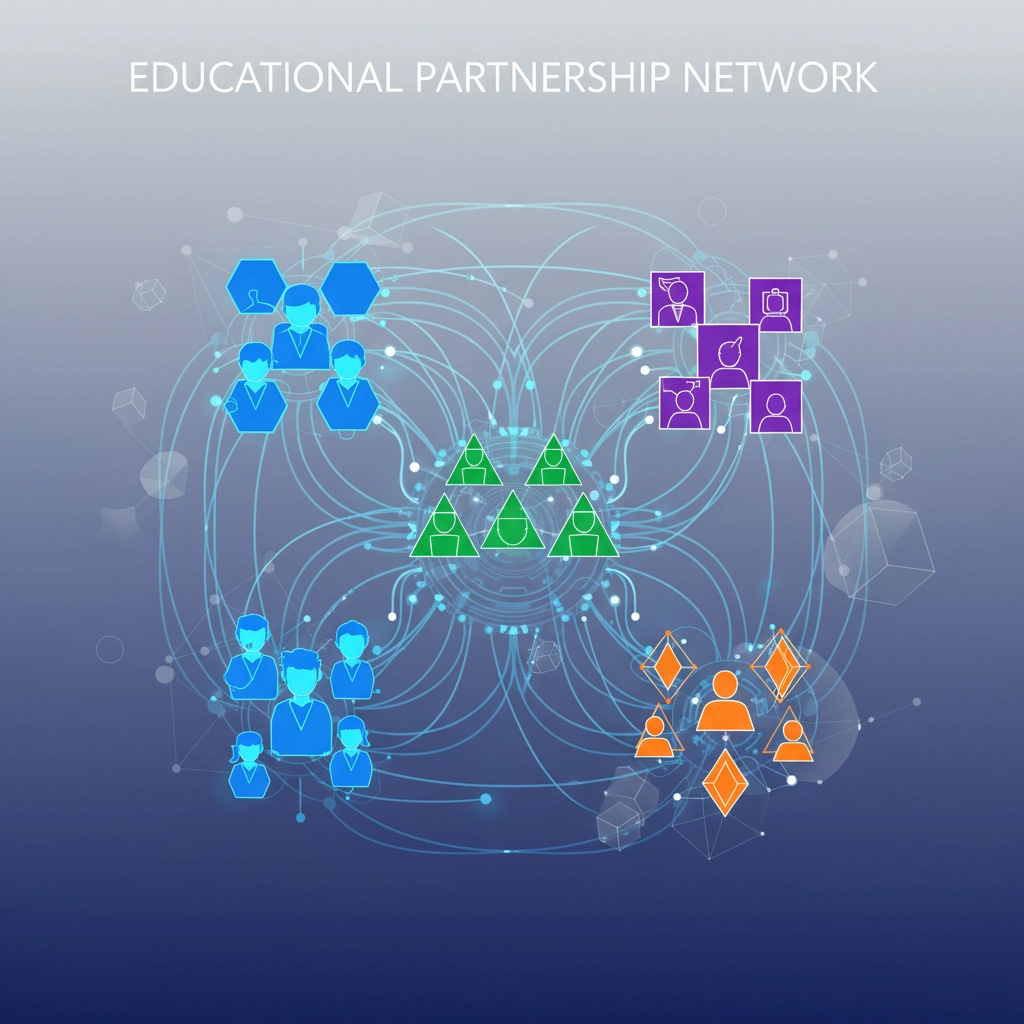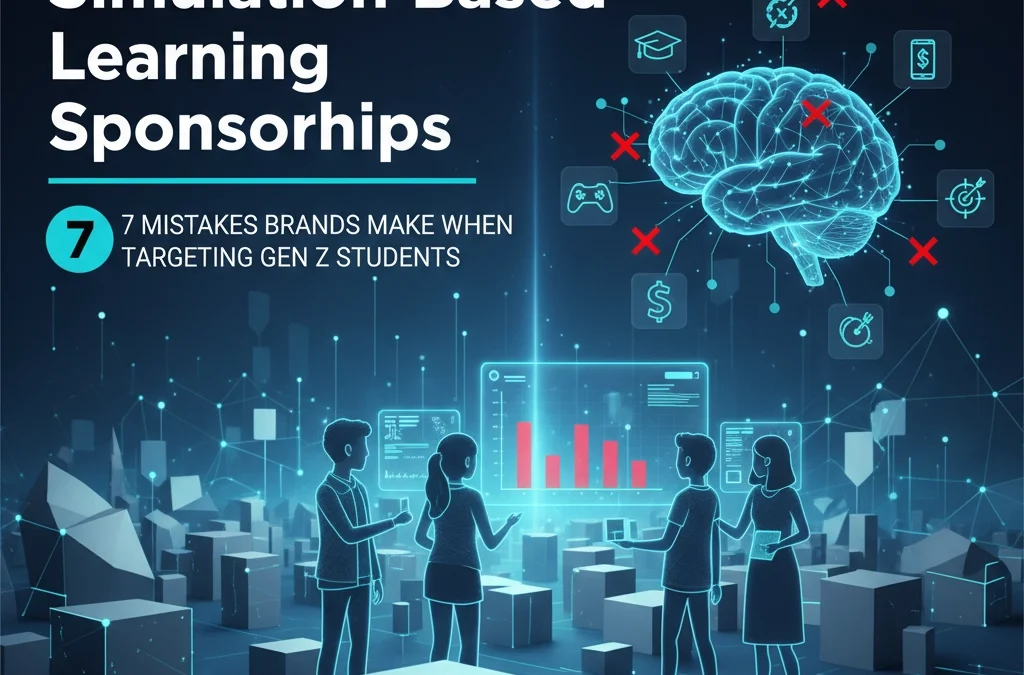The landscape of educational marketing has fundamentally shifted as Generation Z becomes the dominant demographic in high schools across America. With over 68 million Gen Z students currently enrolled in educational institutions, brands are increasingly recognizing the immense potential of simulation-based learning sponsorships, particularly through innovative platforms like esports pods. However, despite the significant opportunities, many brands continue to make critical errors that not only waste substantial marketing budgets but also alienate the very audience they seek to engage.
At Dakdan Worldwide, our extensive experience in educational partnerships and esports venue development has provided us with unique insights into the common pitfalls that brands encounter when targeting Gen Z students through simulation-based learning initiatives. Understanding these mistakes is crucial for organizations seeking to create meaningful, effective partnerships that drive both educational outcomes and brand engagement.
Mistake 1: Treating Esports Pods as Traditional Advertising Spaces
The most fundamental error brands make is approaching simulation-based learning environments, particularly esports pods, as conventional advertising platforms. Unlike traditional media channels, these educational spaces require a completely different strategic approach that prioritizes learning outcomes over promotional messaging.
Gen Z students, who have grown up with sophisticated digital literacy skills, immediately recognize and reject overtly promotional content. Research demonstrates that 63% of this generation actively uses ad blockers and has developed an inherent skepticism toward traditional marketing tactics. In educational environments, this resistance intensifies as students expect authentic value from sponsored content.

Successful brands recognize that esports pods function as immersive learning laboratories rather than billboard opportunities. The most effective partnerships integrate brand messaging naturally into the simulation experience, creating value through enhanced educational content rather than disruptive promotional material. Our team at Dakdan Worldwide has developed comprehensive frameworks that help brands navigate this delicate balance, ensuring their involvement enhances rather than detracts from the educational experience.
Mistake 2: Ignoring the Complex Educational Decision-Making Process
Educational institutions operate with multi-layered decision-making structures that many brands fail to understand or address comprehensively. Unlike consumer marketing, where individual purchasing decisions predominate, educational sponsorships require engagement with multiple stakeholders including students, educators, administrators, IT departments, and often parent communities.
Brands that focus exclusively on student engagement while neglecting other key stakeholders frequently encounter unexpected roadblocks during implementation phases. Successful simulation-based learning partnerships require tailored messaging strategies for each stakeholder group, addressing their specific concerns and priorities.
For instance, while students may be excited about cutting-edge gaming technology, administrators focus on educational outcomes and budget considerations. IT departments prioritize technical specifications and support requirements, while educators need clear curriculum integration pathways. Our comprehensive stakeholder engagement approach ensures all parties receive relevant, compelling information that facilitates smooth partnership development.
Mistake 3: Misunderstanding Academic Timing and Budget Cycles
Educational institutions operate on fiscal years and academic calendars that differ significantly from traditional business cycles, yet many brands approach schools with the same timing strategies they use for consumer marketing. This fundamental misunderstanding can result in proposals being shelved for entire academic years.
School districts typically begin budget planning processes 12-18 months in advance, with specific windows for new program evaluation and approval. Brands that miss these critical timing windows often find their innovative simulation-based learning proposals relegated to future consideration, regardless of their merit.

At Dakdan Worldwide, our educational partnership team maintains detailed academic calendar databases and proactive outreach schedules that align with institutional planning cycles. This strategic approach ensures our clients' proposals receive timely consideration and optimal positioning within educational decision-making processes.
Mistake 4: Underestimating Technical Integration Requirements
Simulation-based learning platforms, particularly advanced esports pods, require sophisticated technical infrastructure that many brands fail to adequately consider during partnership planning. Generation Z students have exceptionally high expectations for technology performance, and technical shortcomings can immediately undermine even the most well-intentioned educational initiatives.
Common technical oversights include insufficient bandwidth planning, inadequate hardware specifications, poor user interface design, and lack of technical support protocols. These issues not only frustrate students but also create additional burdens for already resource-constrained educational staff.
Our esports pod solutions address these challenges through comprehensive technical planning that includes infrastructure assessment, hardware optimization, software integration, and ongoing support protocols. We ensure that brand partners understand and adequately resource the technical requirements necessary for successful implementation.
Mistake 5: Failing to Align with Educational Standards and Curriculum Requirements
Many brands approach educational sponsorships with exciting technology solutions that lack clear connections to established curriculum standards and learning objectives. This disconnect creates significant barriers to adoption, as educators must justify new programs within existing educational frameworks and assessment requirements.
Generation Z students, despite their enthusiasm for innovative technology, still require educational experiences that contribute meaningfully to their academic progress and career preparation. Simulation-based learning initiatives that fail to demonstrate clear educational value quickly lose student engagement and institutional support.

Successful partnerships require deep understanding of relevant educational standards, assessment protocols, and curriculum integration opportunities. Our team works closely with educational consultants and curriculum specialists to ensure all simulation-based learning initiatives align with established academic requirements while maintaining student engagement through innovative delivery methods.
Mistake 6: Overlooking the Importance of Peer Influence and Social Dynamics
Generation Z exhibits strong peer influence patterns that significantly impact adoption and engagement rates for educational technologies. Brands that focus solely on individual student engagement often miss the crucial social dynamics that drive widespread acceptance and sustained participation in simulation-based learning programs.
Esports pods naturally create collaborative learning environments that leverage these social dynamics effectively. However, brands must understand how to structure experiences that encourage positive peer interactions while avoiding competitive dynamics that might exclude or discourage certain student populations.
Our approach emphasizes inclusive design principles that create opportunities for students with varying skill levels and interests to contribute meaningfully to simulation-based learning experiences. This strategy maximizes participation rates while building positive brand associations through successful collaborative outcomes.
Mistake 7: Neglecting Long-Term Relationship Building and Ongoing Support
The most expensive mistake brands make in educational partnerships is treating sponsorships as one-time transactions rather than long-term relationship investments. Generation Z students and educational institutions both value consistency and ongoing support, particularly for technology-based initiatives that require continuous updates and maintenance.
Many brands successfully launch simulation-based learning programs but fail to provide adequate ongoing support, leading to program deterioration and negative associations with their involvement. This short-sighted approach not only wastes initial investment but also damages reputation within educational communities.

At Dakdan Worldwide, we structure all educational partnerships with comprehensive long-term support protocols that include regular program evaluation, technology updates, curriculum enhancements, and stakeholder feedback integration. This approach ensures sustained program success while building strong, lasting relationships that benefit all parties.
Building Successful Simulation-Based Learning Partnerships
Avoiding these common mistakes requires strategic partnership with experienced educational marketing specialists who understand both Generation Z engagement patterns and institutional requirements. Our team at Dakdan Worldwide combines extensive experience in media consulting, entertainment, and sports marketing with specialized expertise in educational technology implementation.
We help brands develop comprehensive simulation-based learning sponsorship strategies that create authentic value for students while achieving meaningful brand engagement objectives. Our approach includes stakeholder analysis, technical planning, curriculum integration, timeline optimization, and long-term relationship management.
For brands seeking to capitalize on the tremendous opportunities within Generation Z educational marketing, partnering with experienced specialists ensures investment protection while maximizing positive outcomes for all stakeholders. Contact our team today to explore how simulation-based learning partnerships can elevate your brand's educational impact while driving sustainable business results.
The future of educational marketing lies in authentic, value-driven partnerships that enhance learning experiences while building meaningful brand relationships. Let Dakdan Worldwide guide your organization toward successful engagement with Generation Z students through innovative simulation-based learning initiatives that deliver lasting impact.


Recent Comments